Blog
Welcome to our blog. Here is our latest news, interviews, and stories. Enjoy.

A Conversation with Khadim Mane of Little Baobab
In late November, we spoke with Khadim Mané, the head chef and founder of Senegalese restaurant, Little Baobab. Born and raised in Senegal, Khadim grew up in a culture shaped by teranga, a Wolof term often used to describe the spirit of generosity and hospitality that is woven into the fabric of Senegalese values...
 KM –
27 Dec, 2025
KM –
27 Dec, 2025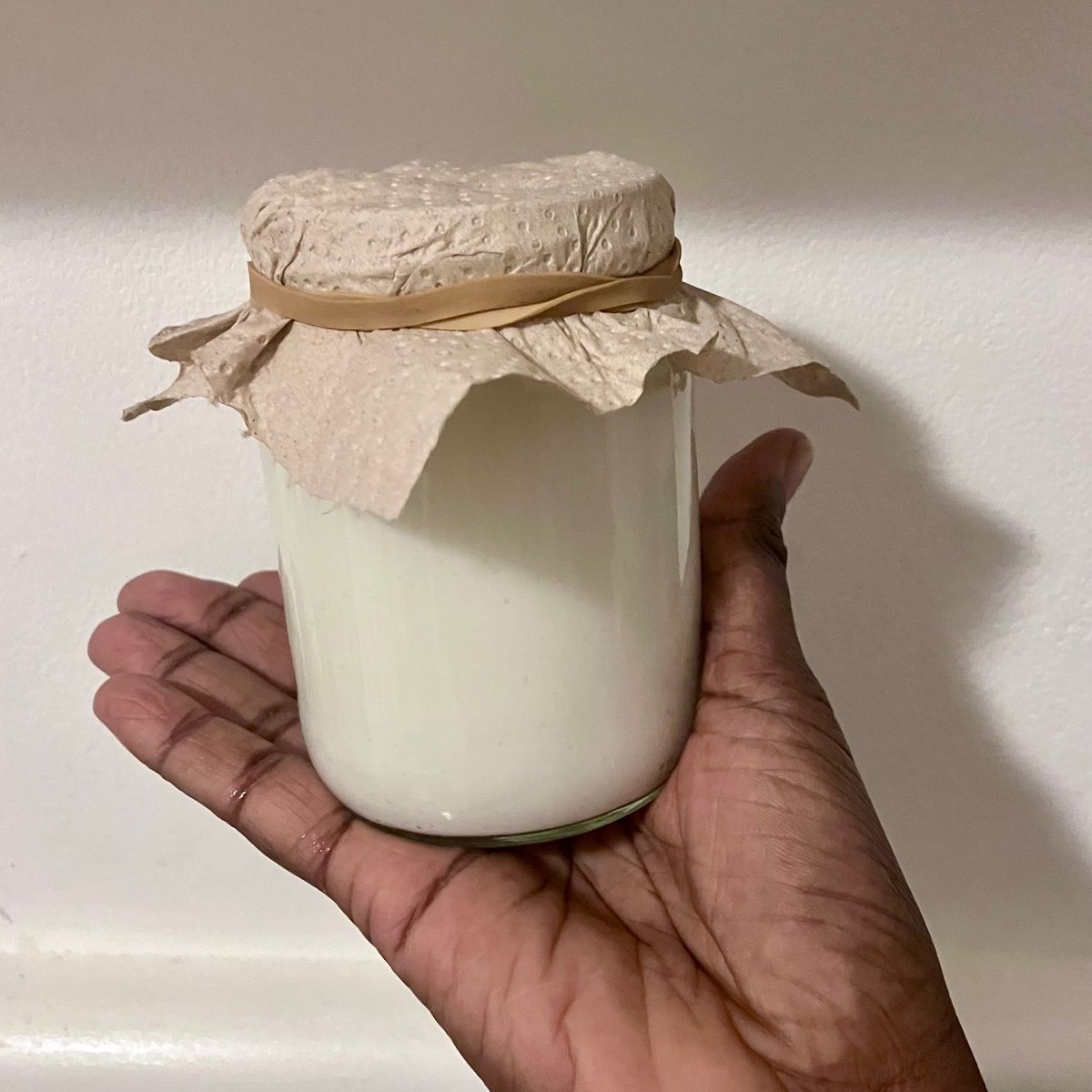
DIY Coconut Yoghurt Recipe
For those who are vegan, or who just want to reduce the amount of dairy they consume, there has been a huge rise in plant-based products on offer. However, many mass-produced, plant-based products can also use additives to make them taste or feel like their animal-based equivalents. We found this simple recipe for coconut yoghurt on social media and thought...
 VN –
24 Dec, 2025
VN –
24 Dec, 2025
Hurricane Melissa Donations
Our thoughts are with everyone dealing with the devastating effects of Hurricane Melissa across the Caribean and their families across the Diaspora.
Here are a few suggestions if you want to make a donation. In south London, JN Bank (Jamaica National Bank) is collecting donations of essential items (non-perishable foods, toiletries, nappies, personal hygiene products, battery-powered lights, tarpaulins, etc) can be dropped off at...
 VN –
20 Nov, 2025
VN –
20 Nov, 2025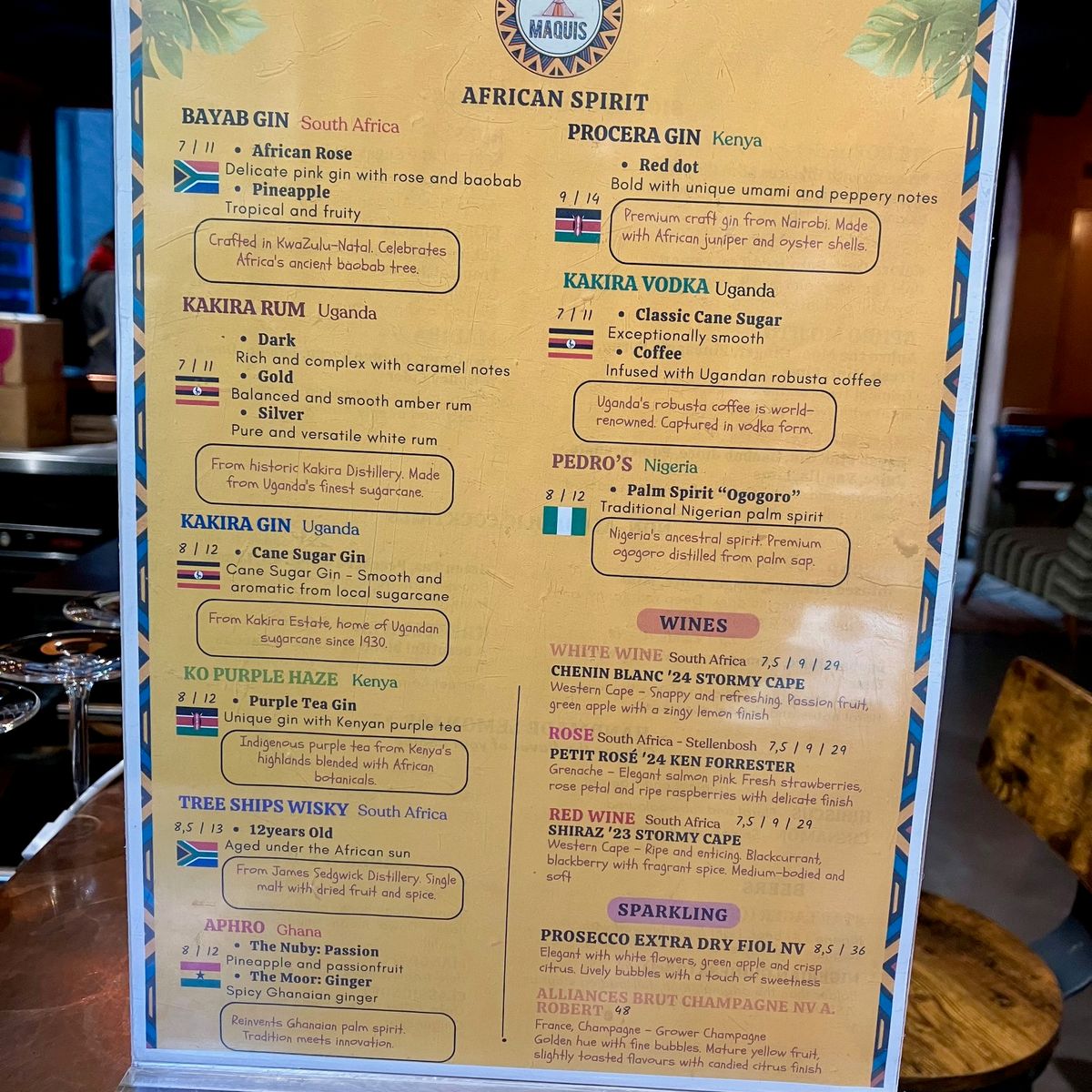
Summoning African Spirits
Back in February, we made our first visit of the project to Little Baobab at the Africa Centre, sampling their fermented dishes attiéké and chakry. We vowed to come back to connect with founder and head chef Khadim Mané. We recently had the pleasure to interview Khadim, who generously shared his journey of migration, Senegalese cooking, international cooking, and fermentation with us. It was a complete joy. We will be sharing the interview here very soon.
On our previous visit to Little Baobab, we enjoyed...
 VN –
04 Nov, 2025
VN –
04 Nov, 2025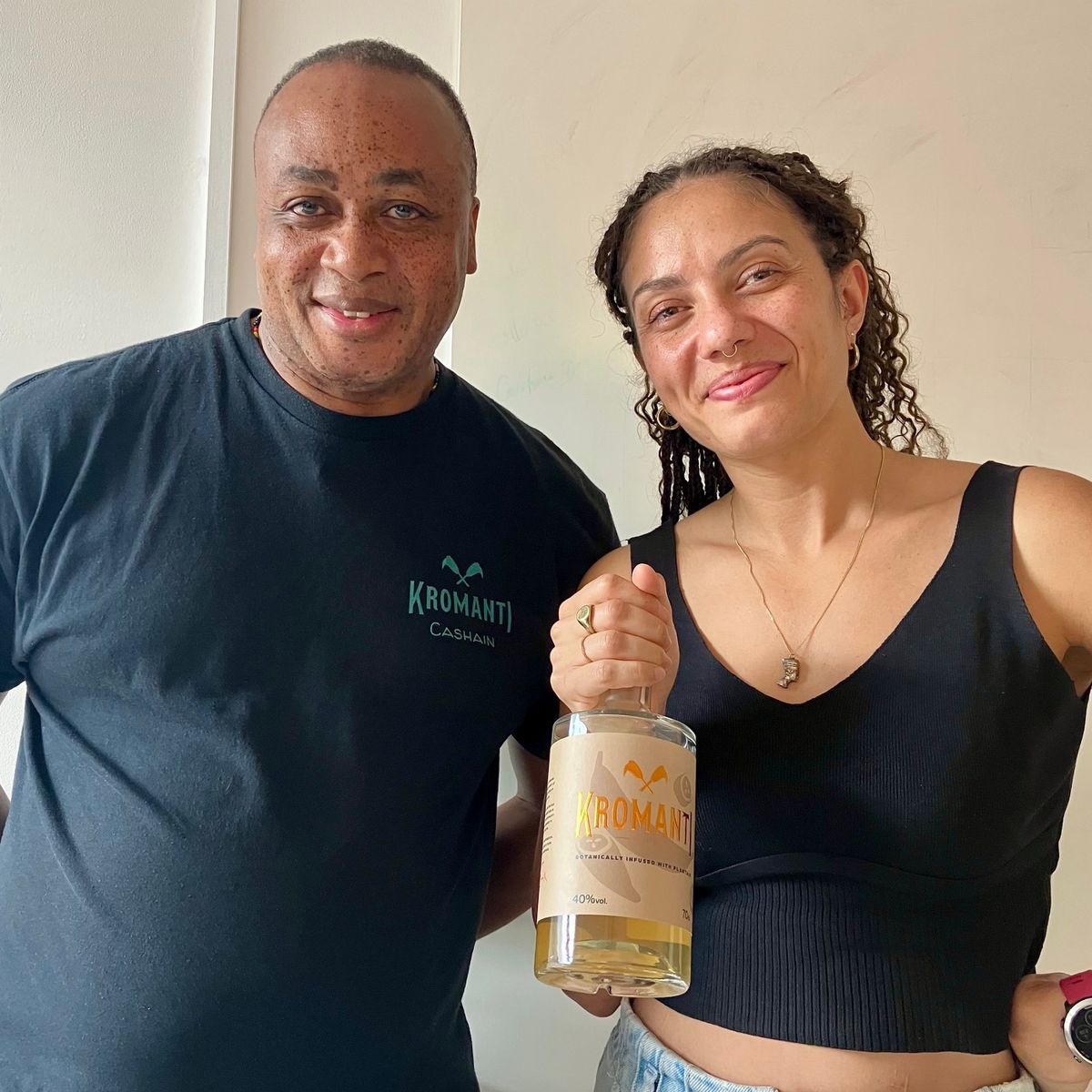
A Conversation with Kromanti Rum: The Rum for the People Dem
In early August, we had the pleasure of sitting down with Cashain and Danielle David, the father–daughter founders of Kromanti Rum, for an insightful and nourishing conversation. From listening to them, it’s clear that their approach is steeped in intention, cultural reverence, and innovation.
Together, we spoke about the rum industry’s deep ties to colonial violence and how Caribbean histories are often co-opted or erased in mainstream...
 KM –
11 Oct, 2025
KM –
11 Oct, 2025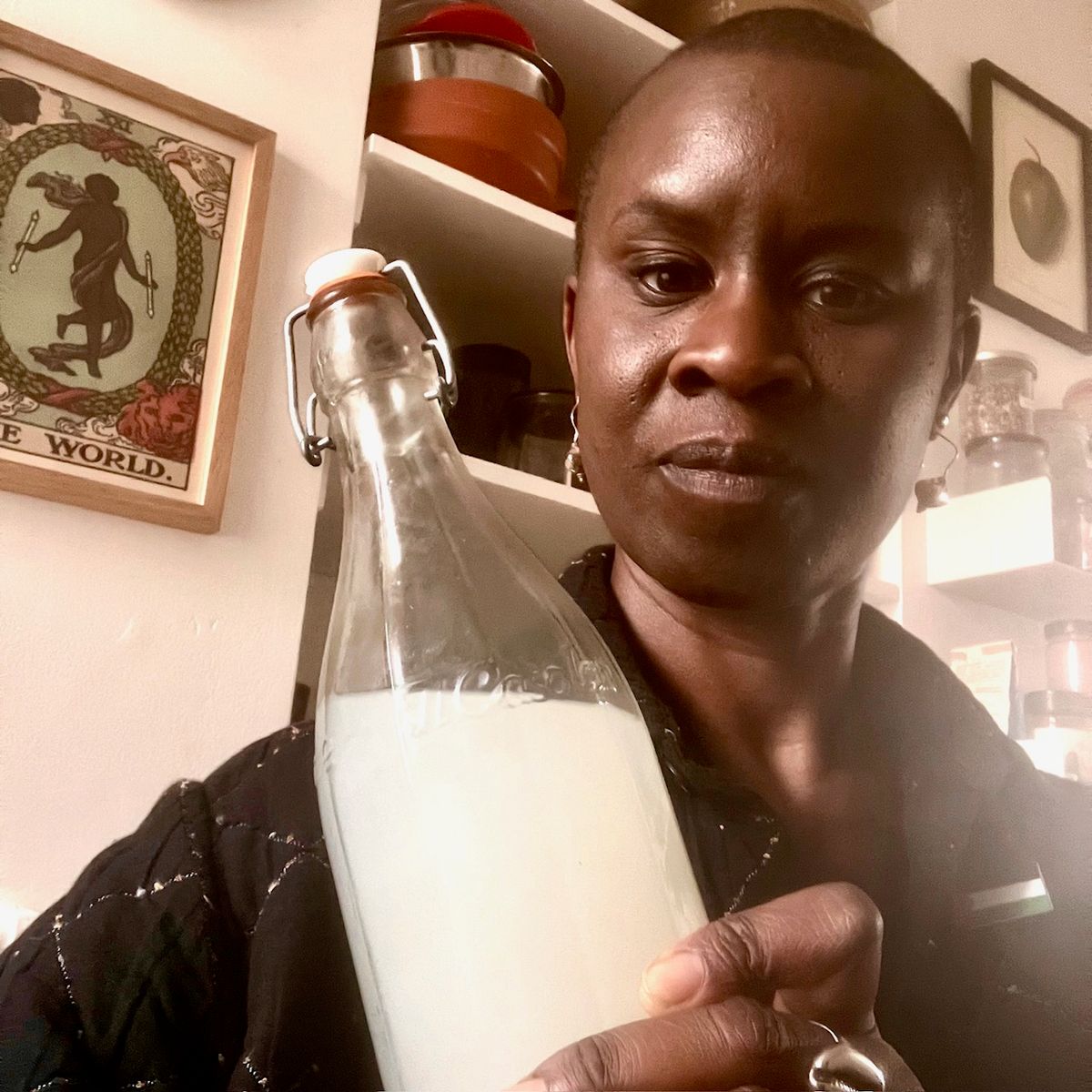
Something Brewing...
This week has been a journey backwards and forwards in time, fermentally (Is that a word? It is now!) speaking. Before the pandemic, I ran a micro-enterprise called Goodness, making and selling raw chocolate and ferments in Brixton. The ferments evolved out of a collaboration Alkaline Juice Factory, a juice bar, vegan café, community hub, and spiritual home to many. Following numerous alchemic conversations with David, Alkaline’s owner, I started fermenting raw, fruit vinegars from the waste skins of the juicing process – mango, pineapple, banana; plus, virgin coconut jelly. I sold...
 VN –
10 Oct, 2025
VN –
10 Oct, 2025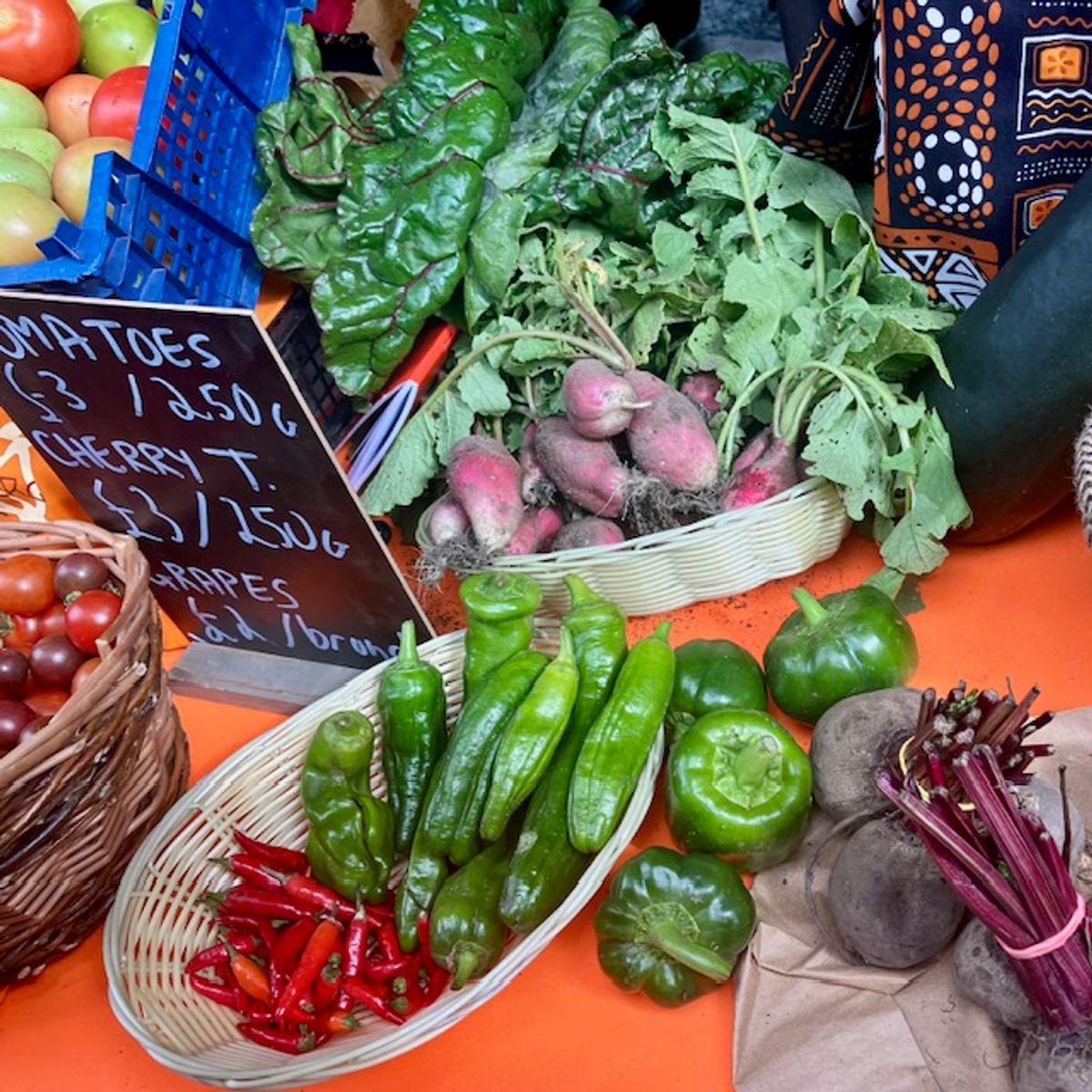
Ital is Vital!
Today we celebrate Ital food. Ital is at the heart of Rastafari culture. Originating in Jamaica in the 1930s, Rastafari is now a global religion, with the liberation of Black people from Western oppression (Babylon) being one of its core goals. Rastafari promotes self-sufficiency and rejects consumerism.
The word 'Ital' stems from the word ‘vital’ referring to a natural relationship to the land as a means of physically and spiritually nourishing the people. Mostly vegan or vegetarian, Ital food centres on organic, self-grown, natural produce with minimal processing or additives. Ital diets are rich in fresh vegetables, fruits, nuts, pulses, and grains...
 VN –
15 Sep, 2025
VN –
15 Sep, 2025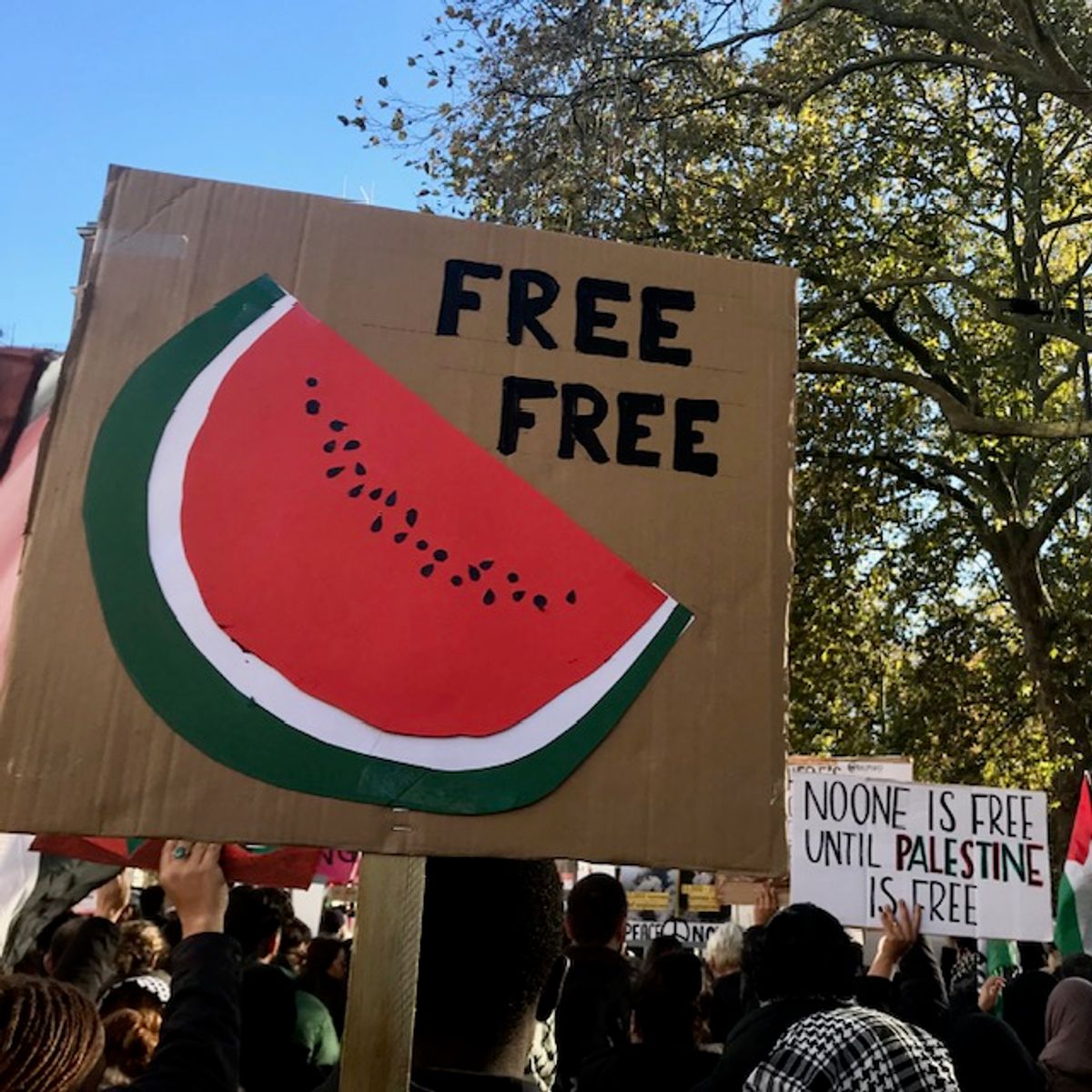
Food as a Weapon #1
We stand in solidarity with the people of Gaza as we witness the weaponising of food and mass starvation caused by the actions of the Israeli government. ‘What’s this got to do with a project about African diaspora fermented food?’ I hear you ask. Researching foods of the diaspora has been a bitter-sweet experience. It brings up issues of colonization, apartheid, and the use of food as a means of controlling enslaved Africans during the Transatlantic Slave Trade (We will write more about this later). The appalling situation in Gaza resonates loudly. Our thoughts are with the Palestinian people, calling for a ceasefire and an end to the weaponising of food urgently.
 VN –
08 Aug, 2025
VN –
08 Aug, 2025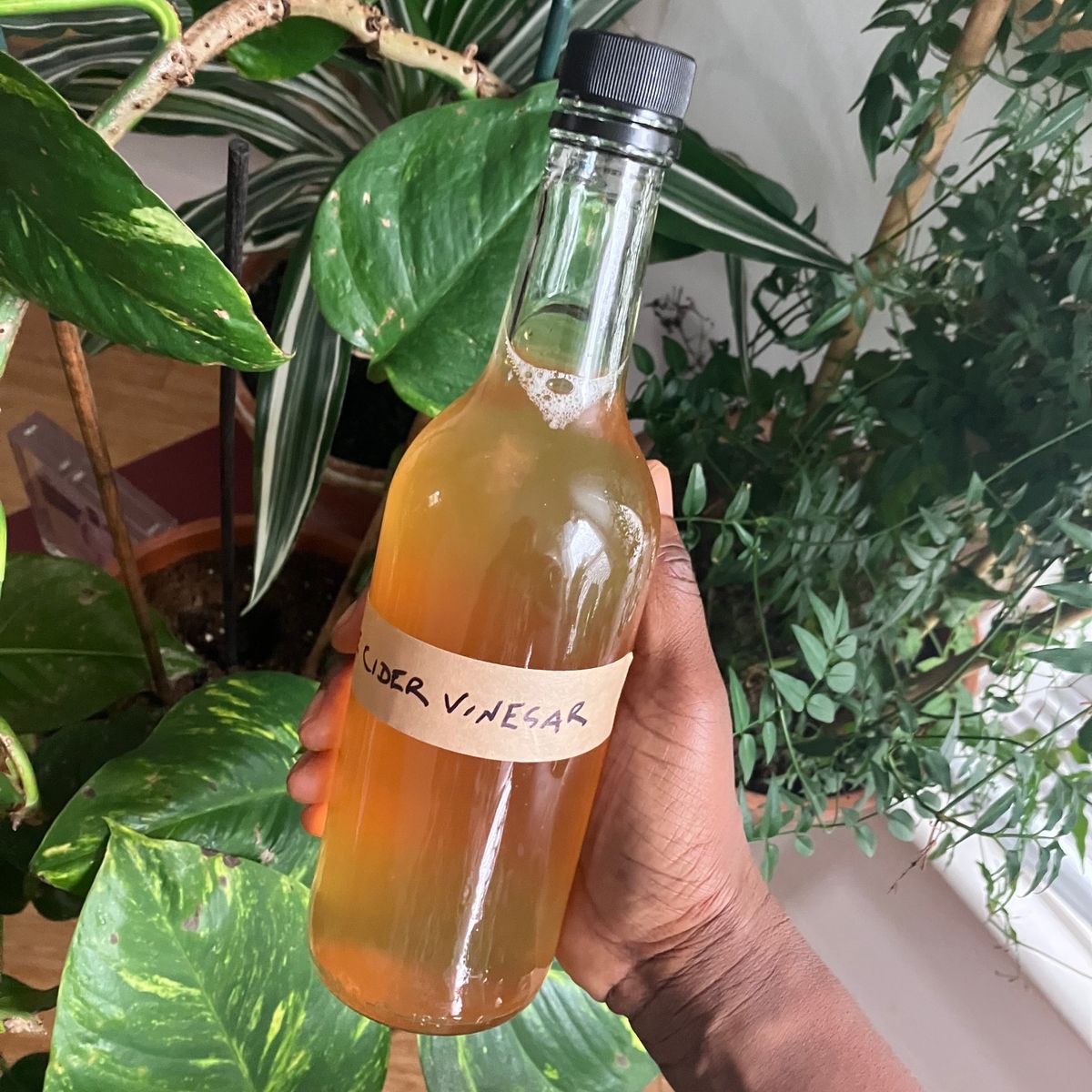
DIY Apple Cider Vinegar
I’ve been itching to write something about apple cider vinegar since it plays such a big part in many Black communities across the diaspora. Like most cultures, we use it as a medicinal tonic, a preservative, a condiment, etc. Vinegars have been part of human diets globally for centuries. There are references to Egyptian vinegars dating back to 3000BCE.
Today in London, apple cider vinegar is widely available, but it can be quite pricey to buy...
 VN –
20 Jul, 2025
VN –
20 Jul, 2025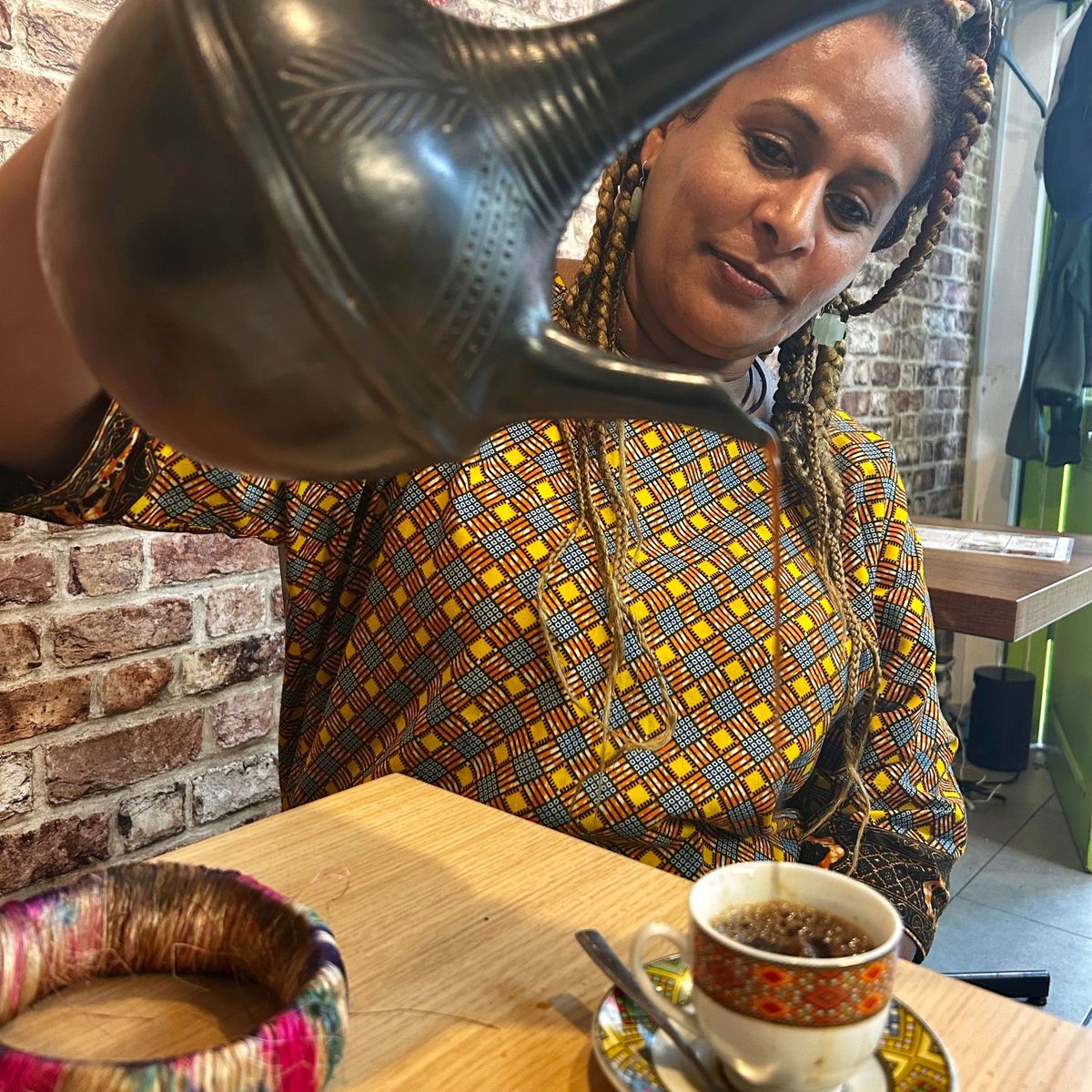
A Conversation with Saba from Taste of Ethiopia and Light of Africa
As part of our project, we’re connecting with local home cooks, chefs, brewers, restaurant owners, and local fermenters to learn about traditional (and new) fermented products and practices across the African diaspora.
We recently had our first conversation with Saba, who runs Light of Africa in Brixton Village (Unit 55)...
 KM –
18 Jul, 2025
KM –
18 Jul, 2025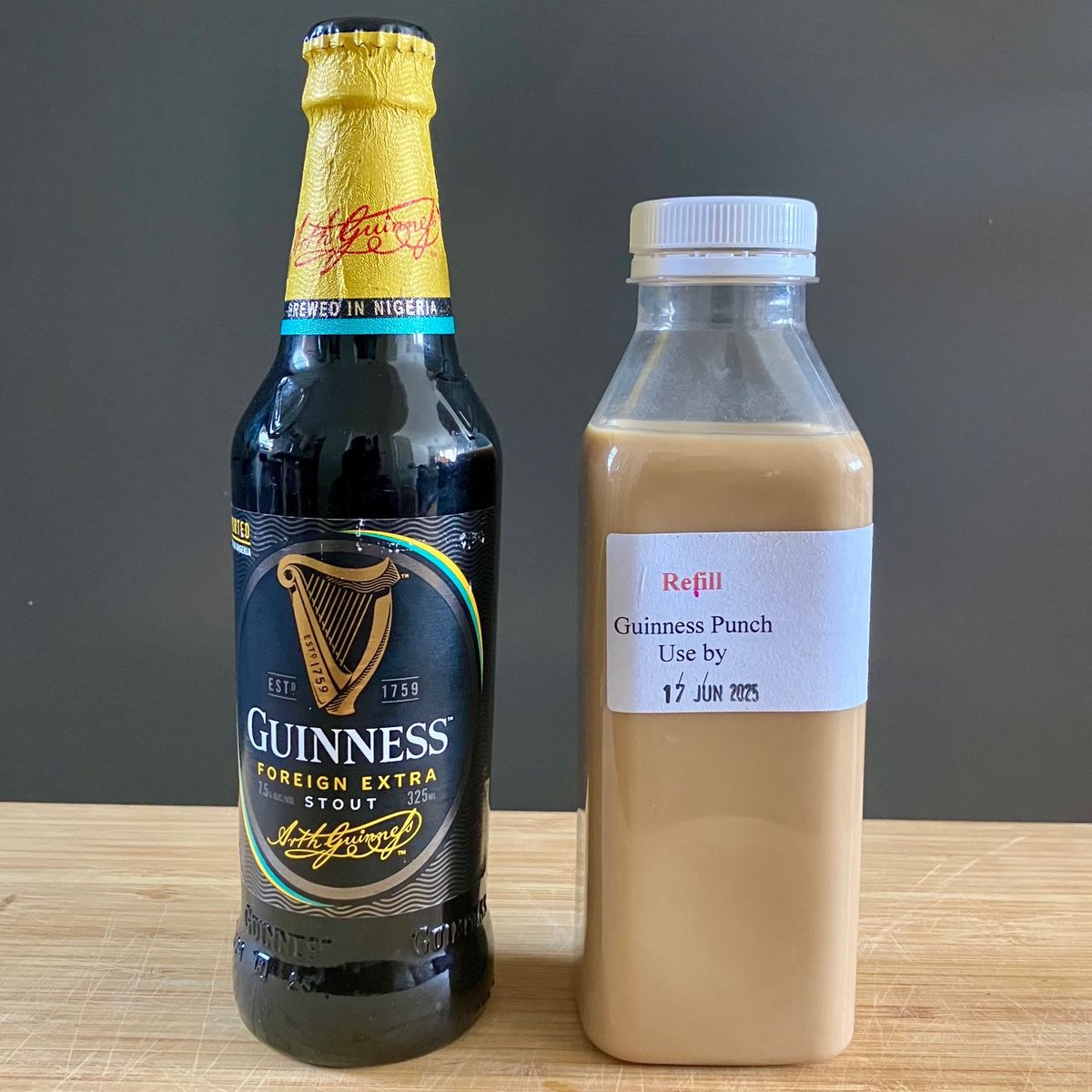
Guinness Two Ways
Nigerian Guinness and Jamaican Guinness Punch. Fermentation, colonisation, community, and diasporas: these two humble beverages embody them all. Irish in origin, Guinness is hugely popular across the Caribbean and Africa. It made its way from Ireland during the Transatlantic Slave Trade via Irish migrants, merchants, plantation owners, anti-British political prisoners, indentured labourers, soldiers, etc...
 VN –
11 Jul, 2025
VN –
11 Jul, 2025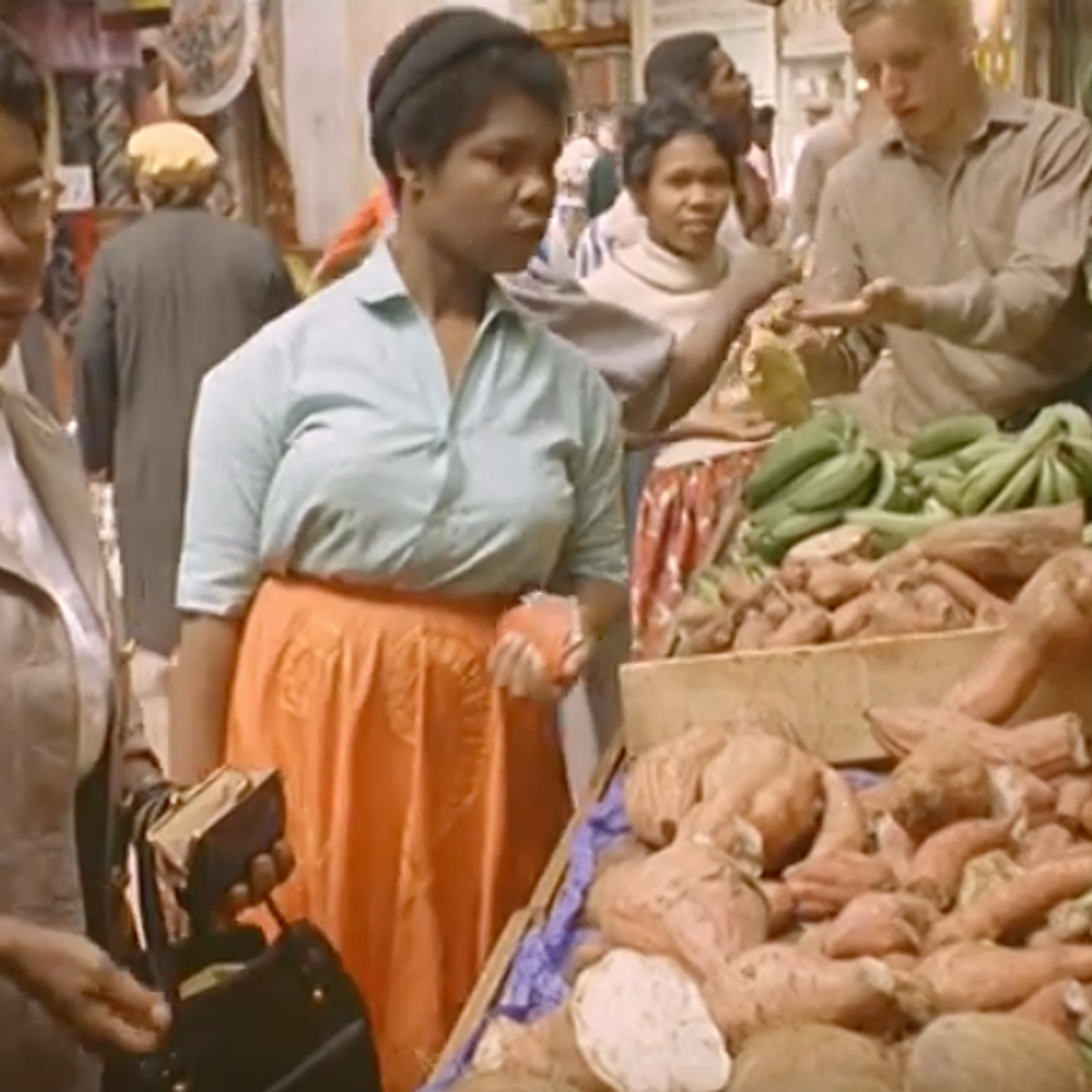
Brixton Market Revisited
Brixton Market and the surrounding area has been the source of many of the fermented foods we have found for this project. It has long been the ‘Mecca’ for the food and cultural goods serving Black communities from London and beyond.We found this amazing Pathé film footage of Granville Parade (now Brixton Village) from 1961, which is around the time my parents came to London from Ghana. They would make special trips to Brixton to...
 VN –
27 Jun, 2025
VN –
27 Jun, 2025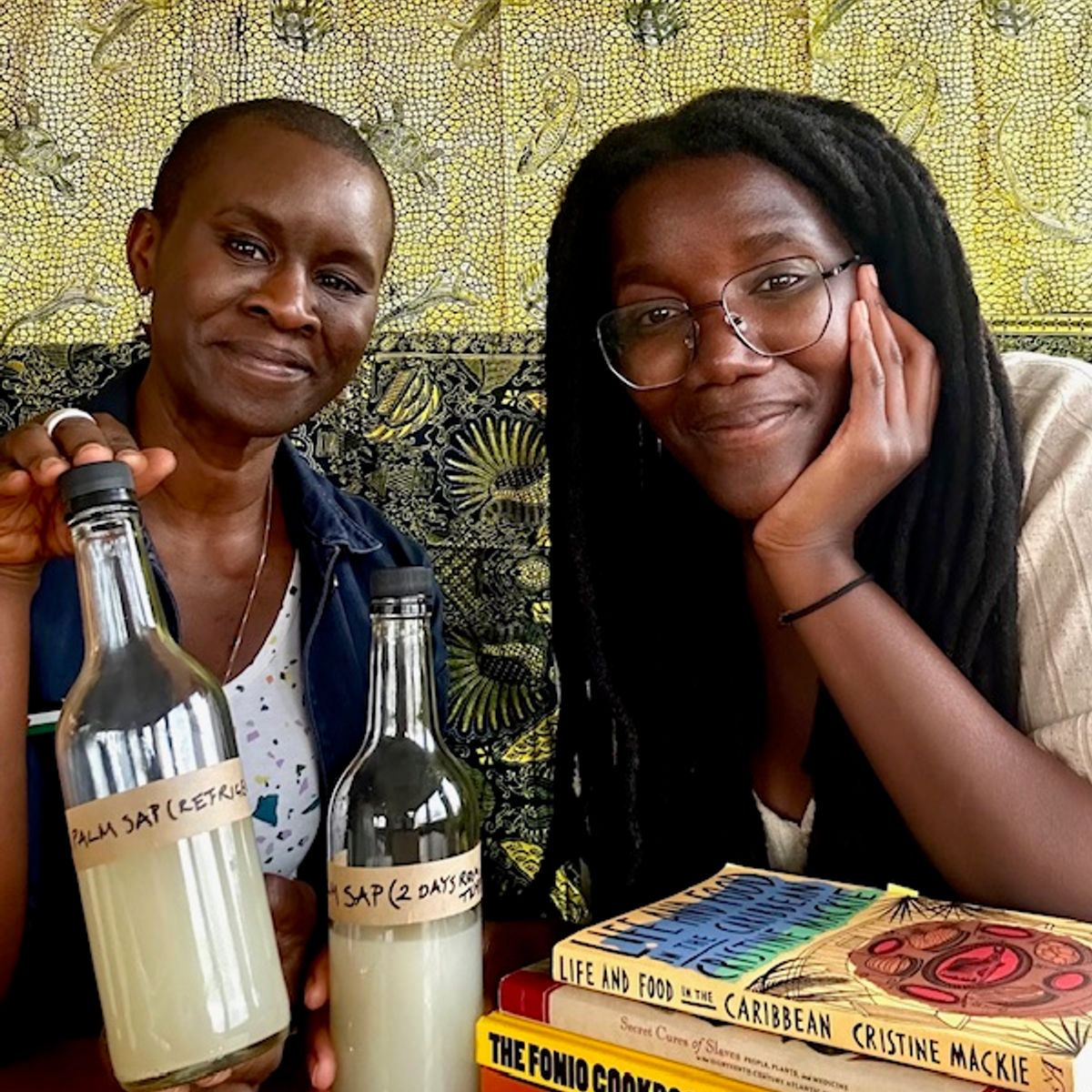
Welcome Kundai!
It’s so exciting to have Kundai Moyo join Fermenting Cultures. I had the pleasure of first connecting with Kundai last year on a programme for local, Black-led community organisations. It's a massive boost to have her expertise and positive energy on the project. Kundai will be interviewing local food suppliers and producers about African and diasporan fermentation, plus looking after our social media...
 VN –
03 Jun, 2025
VN –
03 Jun, 2025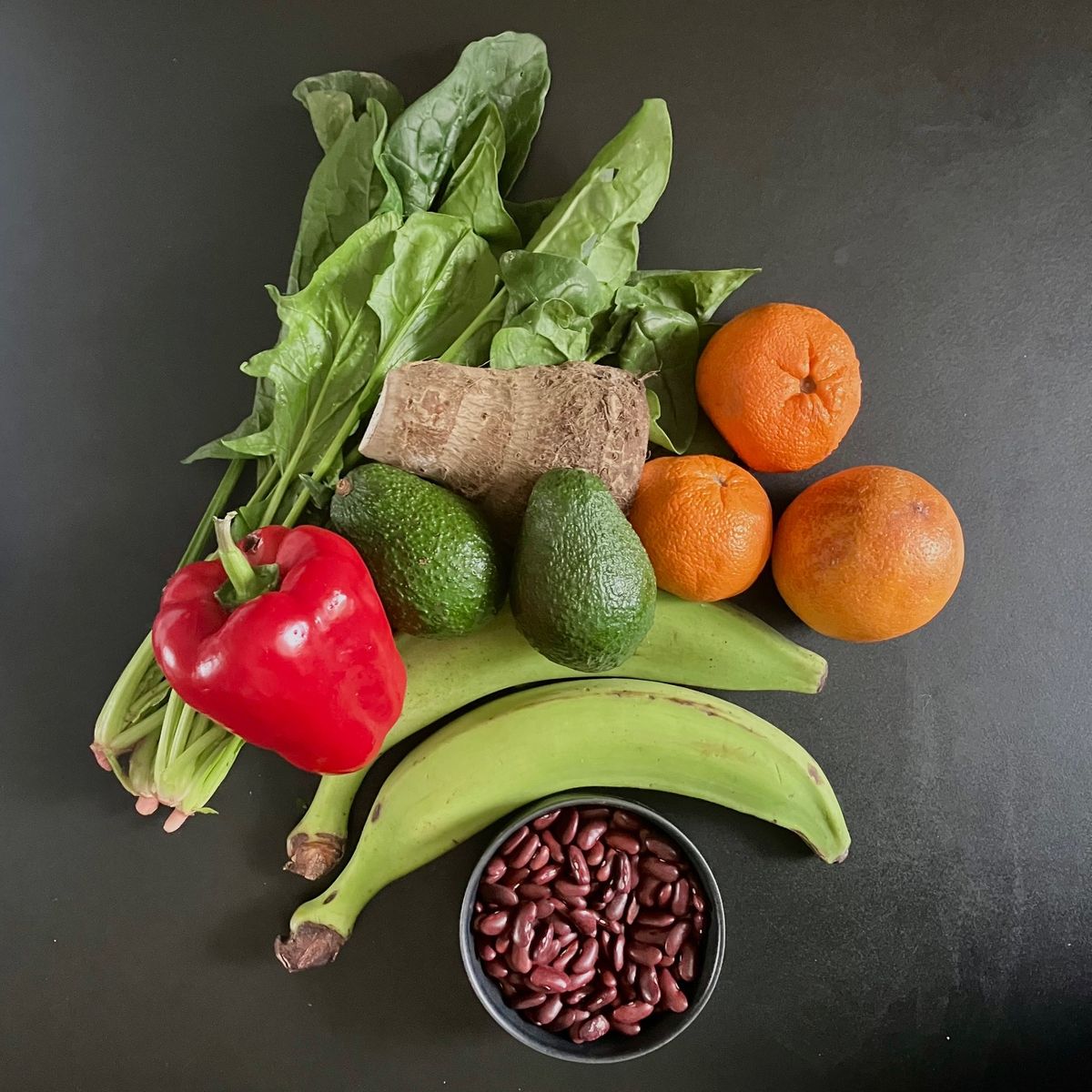
The Tanzanian Diet
There's been a lot of interest in the mainstream press about 'The Tanzanian Diet' in terms of its health benefits. This is no fad diet.
Research published in Nature Medicine journal outlines the diversity of traditional African diets, which are often rich in in vegetables, fruits, legumes, grains and fermented products. The research recognises the lack of scientific attention that African diets receive compared to...
 VN –
28 May, 2025
VN –
28 May, 2025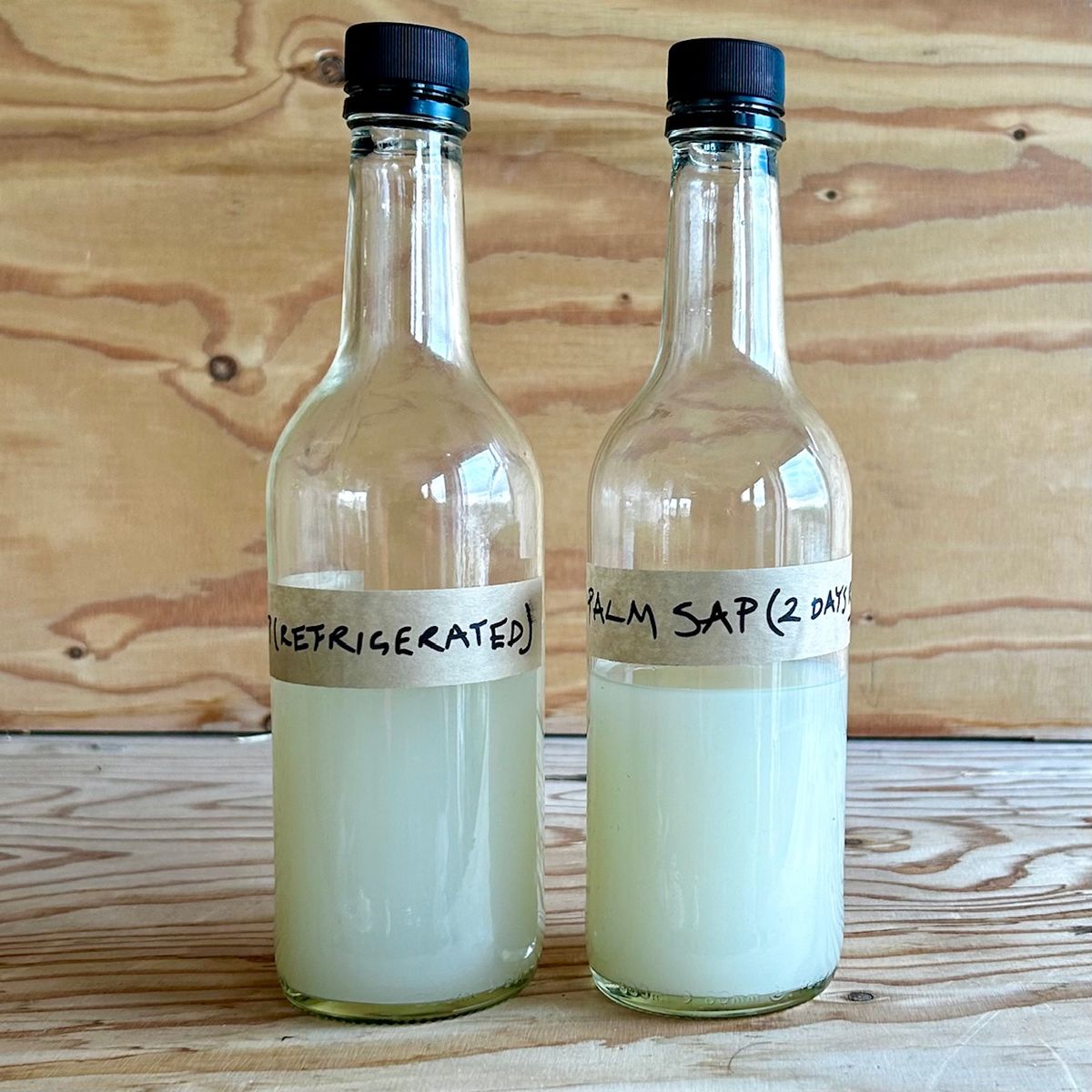
Fermented Palm Sap
Our ferment of the week is palm sap, and it was fun seeing if we could ferment it. Palm sap comes from particular palm trees such as date palm and coconut palm. Palm sap has a high-sugar content, so ferments quickly, and has a short shelf life. The fermented sap can be used to make palm wine, palm spirit, and palm vinegar.
Palm wine is drunk across the tropical world, often as part of traditional celebrations or poured on the ground as libations during cultural rituals....
 VN –
27 May, 2025
VN –
27 May, 2025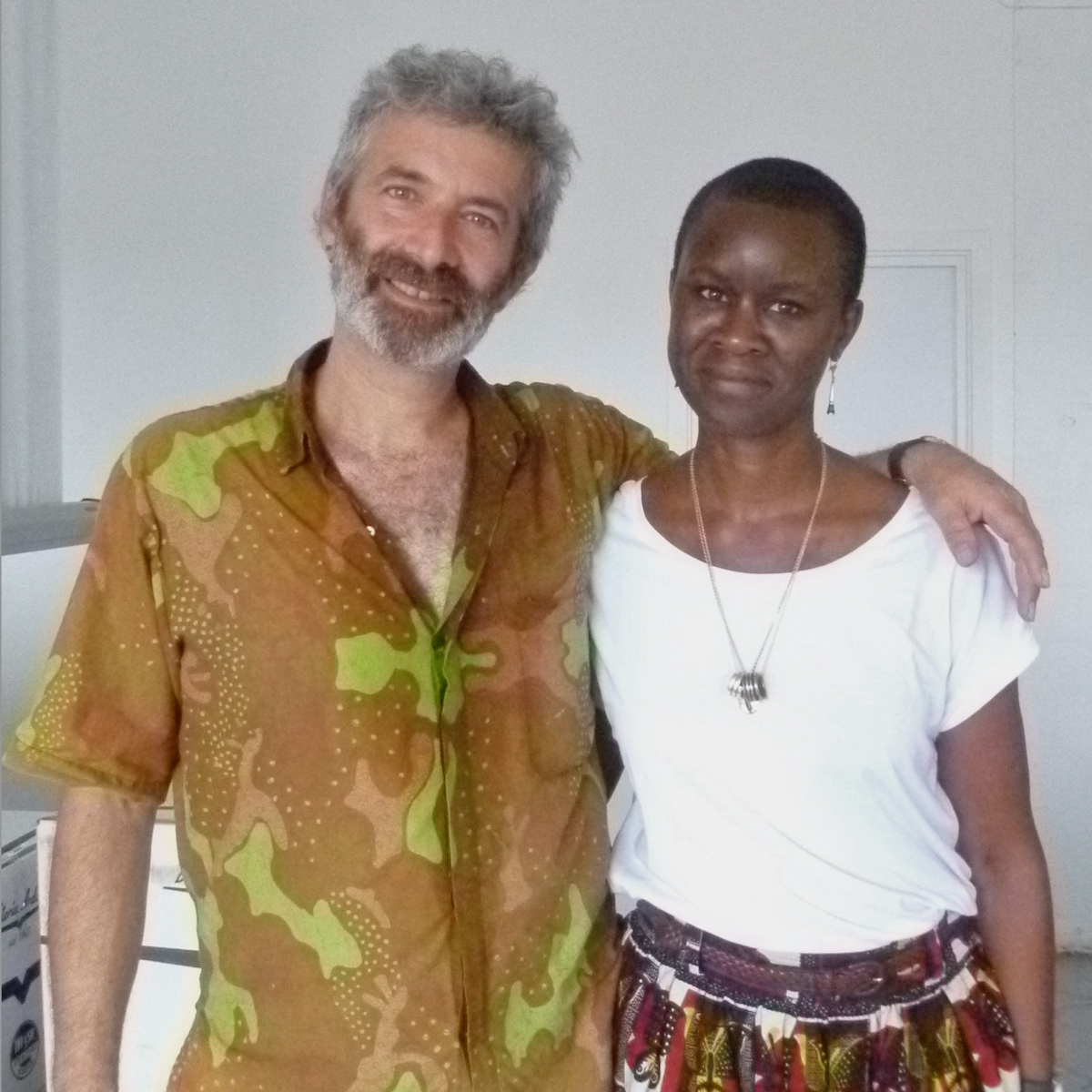
Fermentation Flashback
Flashback to 2017. I got to meet one of my fermentation heroes, Sandor Katz, who came to speak in London from the States. An inspiring event, with Mr Katz sharing his knowledge and infectious enthusiasm about all things fermented. He talked about the origins of using fermentation to preserve foods, and as a means of survival in the days before refrigeration and canning. Fermented foods continue to have important nutritional...
 VN –
14 May, 2025
VN –
14 May, 2025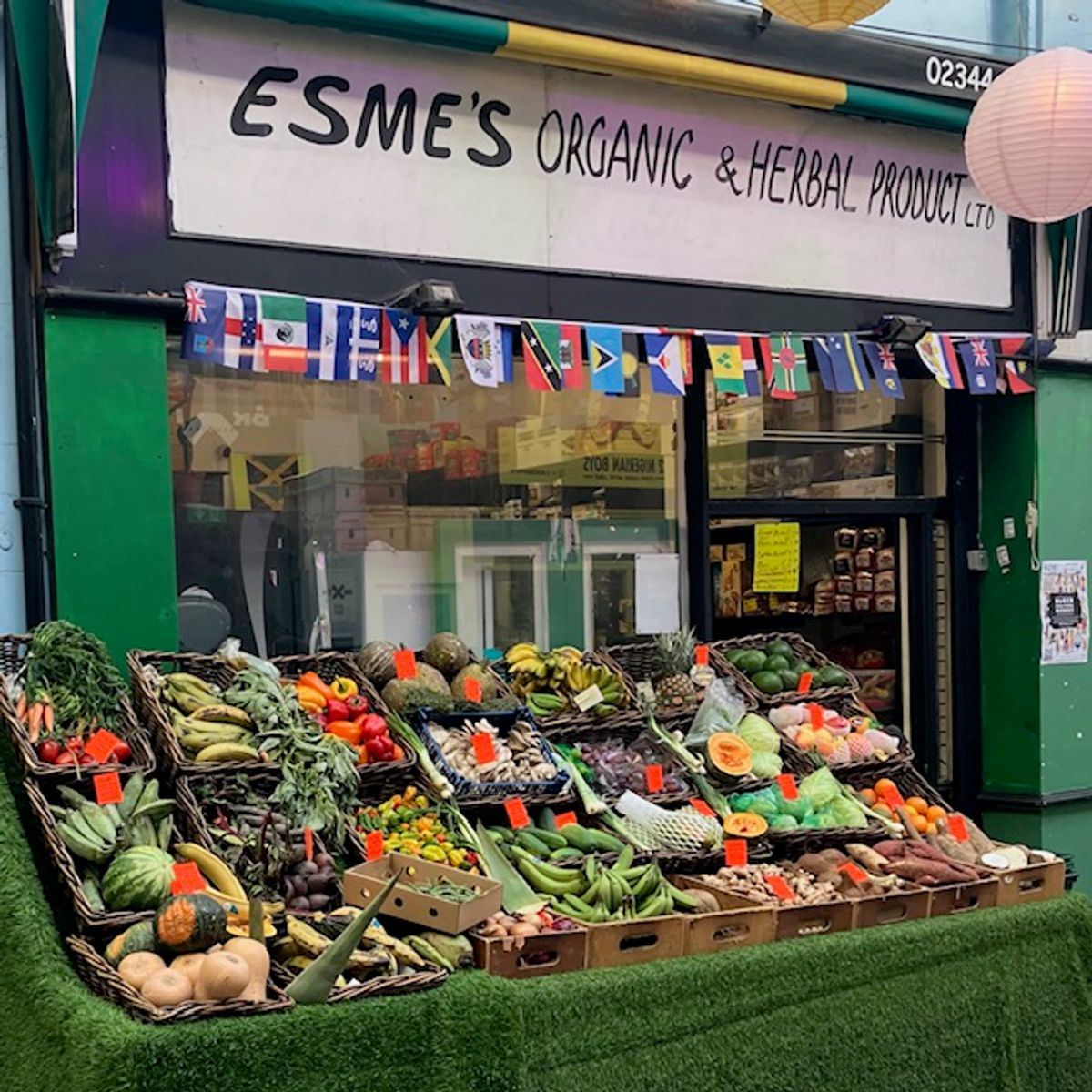
Esme's Organic & Herbal Products
As well as documenting African and diasporan fermented food and drink, we are documenting some of the amazing people and places that supply us with these products. First up, Esme's Organic & Herbal Products, otherwise known as Miss Esme's.
The first thing you notice is the glorious display of fresh and organic fruit and vegetables outside the shop, many sourced directly from Jamaica including avocadoes, cho-cho...
 VN –
26 Apr, 2025
VN –
26 Apr, 2025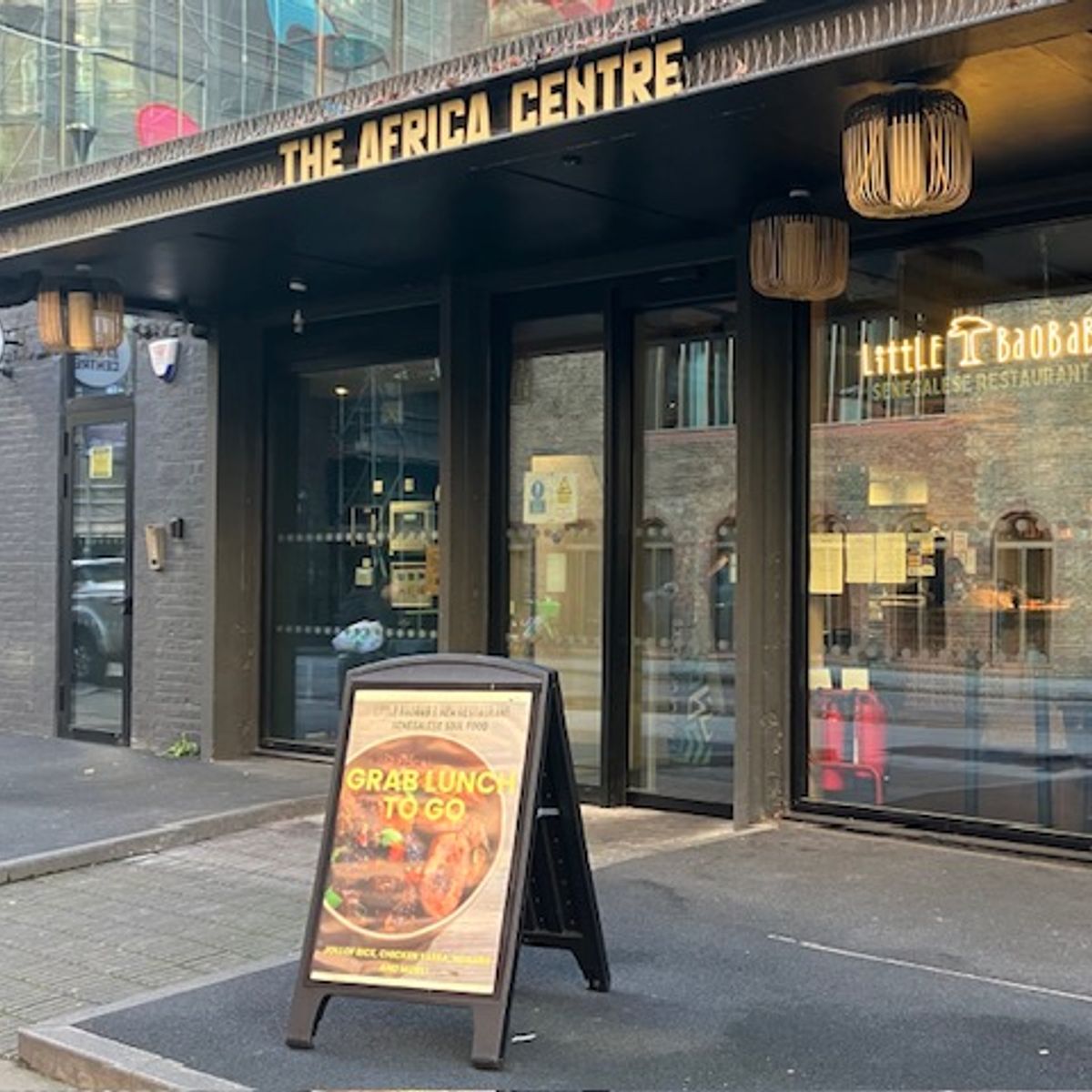
Little Baobab @ The Africa Centre
We checked out Little Baobab restaurant at The Africa Centre in Southwark. Our first time sampling Senegalese food. We were keen to try the fermented products on the menu, of which there were several. We tried the attiéké, a tangy cassava dish with a cous cous like texture; plus thiakry (also known as chakry or degue) a soured milk dessert using wholegrain millet flour, hand-rolled into tiny balls. These are then steamed and...
 VN –
22 Mar, 2025
VN –
22 Mar, 2025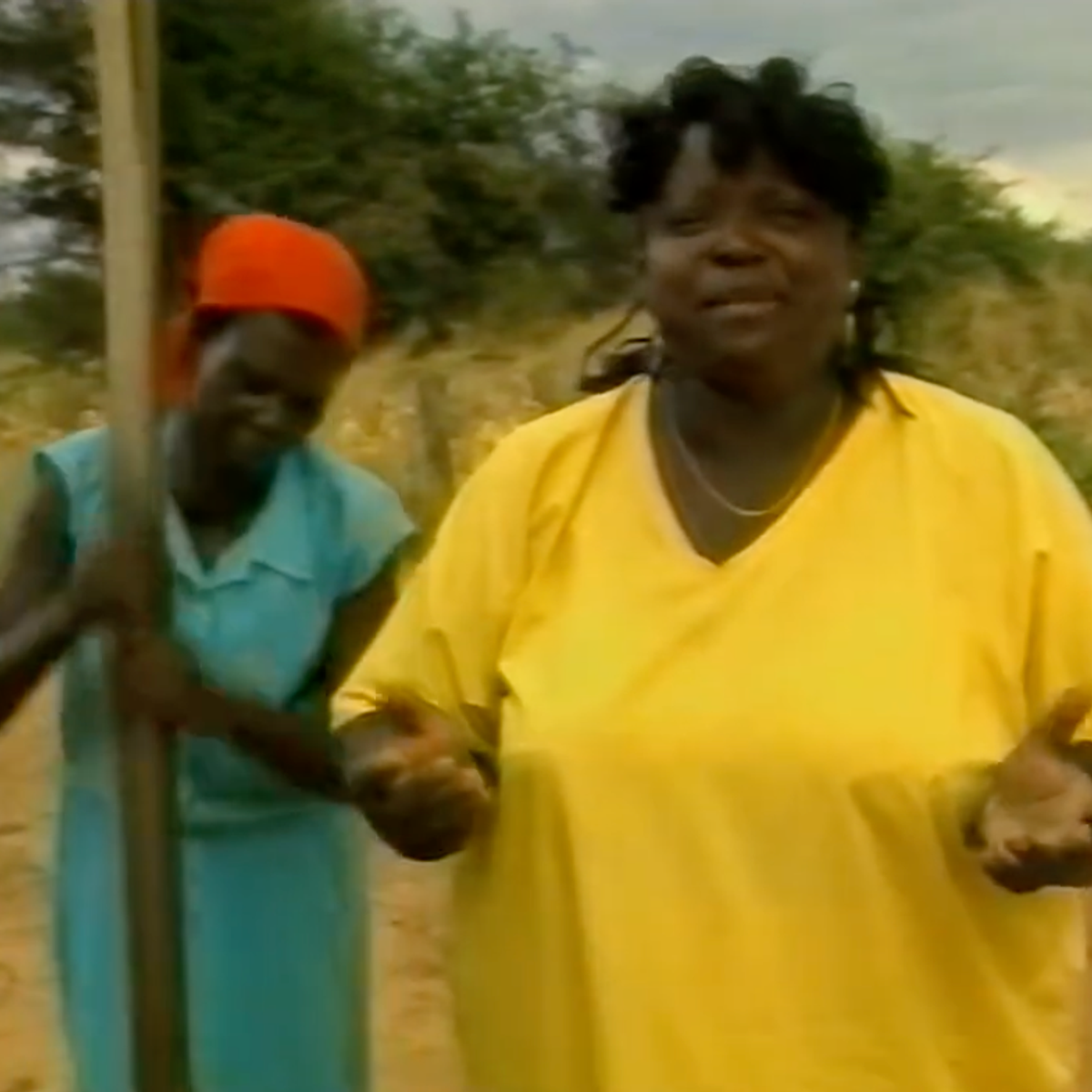
A Taste of Africa Remembered
We found this 1993 episode of A Taste of Africa featuring the ever-fabulous Dorinda Hafner. I remember watching this when it came out and being completely in awe. Seeing a Black African woman fronting a series on mainstream British TV (Channel 4), all about African food and culture, was truly trailblaizing. Dorinda Hafner's infectious curiosity, playful humour, and knowledge are still...
 VN –
15 Mar, 2025
VN –
15 Mar, 2025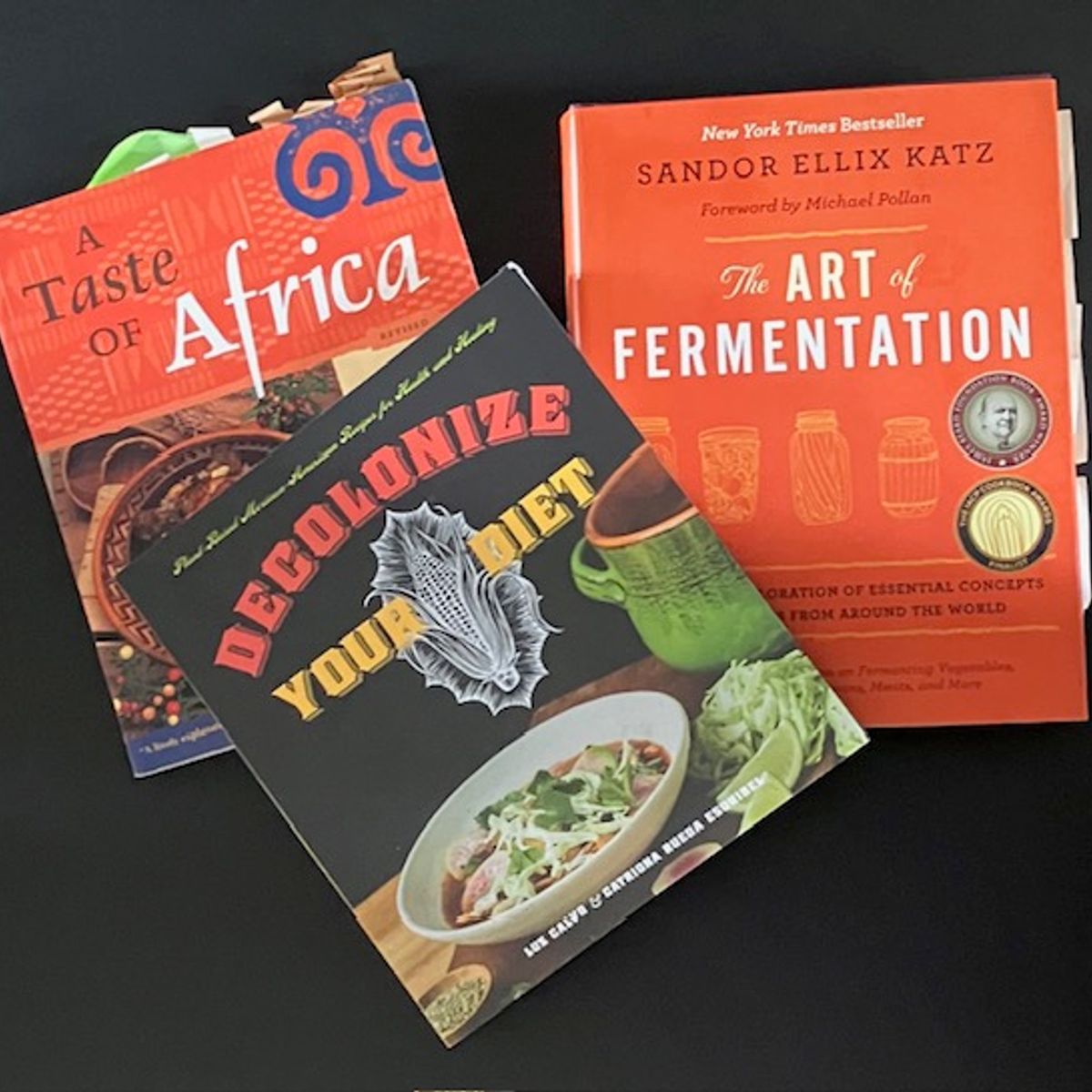
Books Etc
These three books are very close to my heart. They represent everything that Fermenting Cultures is about: the politics of food, community, and fermenting. Dorinda Hafner's 'A Taste of Africa' book followed her ground-breaking TV series in the 1990s. It was the first time I'd ever seen African food discussed on British TV and by an African woman.
'Decolonize Your Diet' by Luz Calvo and Catriona Rueda Esquibel uses ancestral knowledge to...
 VN –
13 Feb, 2025
VN –
13 Feb, 2025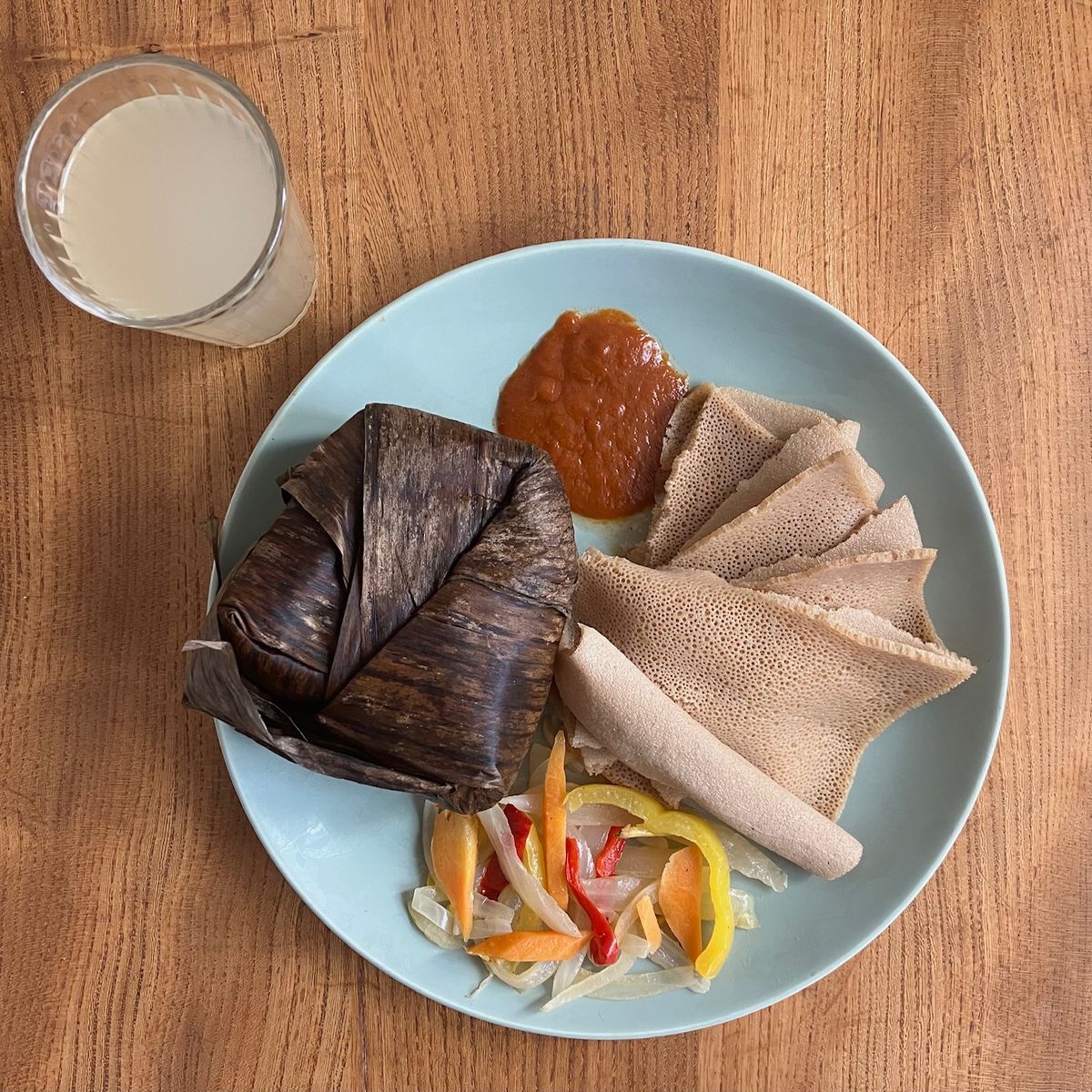
A Plate of Ferments
This photo represents so much about the Fermenting Cultures project. A plate of ferments from Africa and the Caribbean bought in Brixton, south London. Nutritious, affordable, and made in small batches using traditional methods. I’ve consumed this kind of food all my life but never thought of it as fermented. Growing up, we never used the word 'fermented' to describe it. Many still don't.
Of course, every culture on the globe has fermenting practices. For millennia our ancestors have...
 VN –
12 Feb, 2025
VN –
12 Feb, 2025